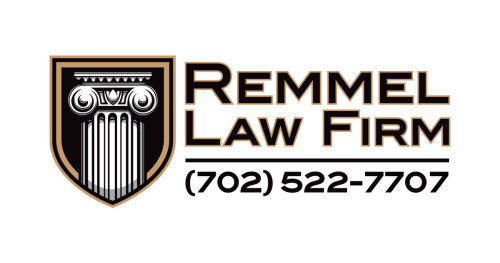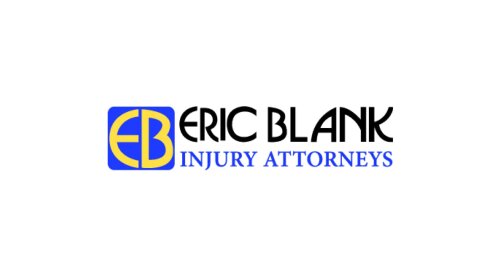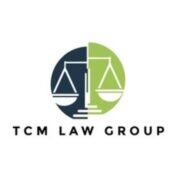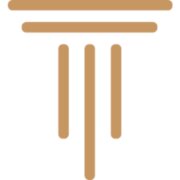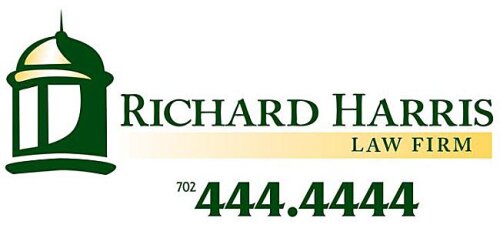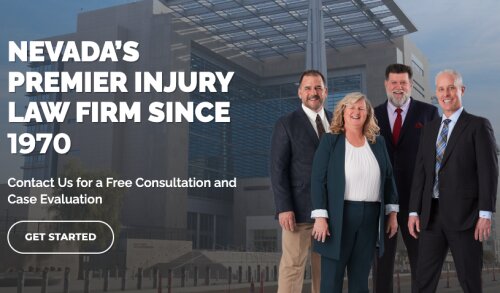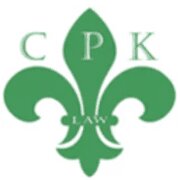Best Ethics and Professional Responsibility Lawyers in Las Vegas
Share your needs with us, get contacted by law firms.
Free. Takes 2 min.
List of the best lawyers in Las Vegas, United States
About Ethics and Professional Responsibility Law in Las Vegas, United States
Ethics and professional responsibility law governs the conduct of lawyers and law firms to protect the public, preserve the integrity of the justice system, and ensure that clients receive competent, honest representation. In Las Vegas, Nevada, these rules come from the Nevada Supreme Court through the Nevada Rules of Professional Conduct, related statutes, case law, and local court rules. The State Bar of Nevada and its Office of Bar Counsel handle investigations, disciplinary proceedings, and enforcement, while the Nevada Supreme Court retains final authority on serious sanctions such as suspension or disbarment.
Why You May Need a Lawyer
People and law firms may need an attorney who specializes in ethics and professional responsibility for many reasons. Common situations include:
- You are a lawyer facing a disciplinary complaint or investigation and need defense counsel to protect your license and reputation.
- You are a client who believes your attorney violated rules on confidentiality, competence, conflicts of interest, fees, or trust account management and want advice about filing a complaint or pursuing malpractice claims.
- You are a law firm or in-house counsel seeking preventive guidance on conflicts checks, fee agreements, trust accounting, advertising rules, or compliance with multi-jurisdictional practice requirements.
- You need assistance with reinstatement, probation compliance, or responding to interim suspensions.
- You are involved in fee disputes or arbitration and want representation or counseling about alternatives to disciplinary complaints.
- You need help interpreting specific rules for a novel situation - for example, ethics issues raised by social media, technology, or multi-party representation in complex matters.
Local Laws Overview
Key local and state sources of ethics and professional responsibility law in Las Vegas include the Nevada Rules of Professional Conduct, Nevada Supreme Court orders, local rules of the Eighth Judicial District Court in Clark County, and State Bar of Nevada procedural rules. Important themes and rules to be aware of:
- Confidentiality and Attorney-Client Privilege: Rules require maintaining client confidences and narrowly define permitted disclosures. Exceptions permit disclosure to prevent certain harms or to comply with court orders, but those exceptions are limited and fact-sensitive.
- Competence and Diligence: Attorneys must provide competent representation and act with reasonable diligence. Lack of knowledge, inadequate preparation, or failure to meet deadlines can result in discipline or malpractice exposure.
- Conflicts of Interest: The rules prohibit representation when there is a direct conflict unless informed consent in writing is obtained. Conflicts can arise from prior representations, business relationships, or simultaneous representation of multiple clients.
- Safekeeping Client Property and Trust Accounts: Lawyers must keep client funds separate, maintain accurate records, and follow trust accounting procedures. Mismanagement of trust accounts is one of the most serious common violations.
- Fees and Fee Agreements: Fees must be reasonable and, in many contexts, confirmed in writing. Disputes over fees may be resolved through the State Bar fee dispute procedures or through court actions.
- Advertising and Solicitation: Nevada regulates lawyer advertising and direct solicitation. False or misleading communications and certain targeted solicitations are prohibited.
- Reporting Misconduct: Under rules similar to ABA Model Rule 8.3, lawyers in Nevada have duties to report certain misconduct by other lawyers. There are also rules addressing disciplinary procedure and protections for good-faith reporting.
- Multi-Jurisdictional Practice and Pro Hac Vice: Out-of-state lawyers must comply with Nevada rules for appearing in local courts, often through pro hac vice admission procedures. Practicing without authorization can raise unauthorized-practice issues.
- Disciplinary Process and Sanctions: The Office of Bar Counsel investigates complaints. The Disciplinary Board conducts hearings and makes recommendations, and the Nevada Supreme Court issues final discipline. Sanctions range from admonitions and reprimands to suspension and disbarment, depending on severity and aggravating or mitigating factors.
- Continuing Legal Education and Ethics Opinions: Nevada requires continuing legal education, including ethics credits, and issues formal and informal ethics opinions to guide lawyer conduct. Staying current with opinions and CLE helps prevent violations.
Frequently Asked Questions
What should I do if I receive a disciplinary complaint from the State Bar of Nevada?
Respond promptly and carefully. Read the complaint and any accompanying documentation. Preserve all client files and communications relevant to the matter. Consider hiring an attorney experienced in bar discipline to prepare a response, advise on negotiation or settlement options, and represent you at any investigation or hearing. Do not destroy evidence or try to handle complex procedural matters alone.
How do I report an attorney I believe acted unethically?
If you are a client or member of the public, you can file a complaint with the State Bar of Nevada - Office of Bar Counsel. Provide a factual, chronological statement and any supporting documents. The office will screen and, if appropriate, investigate the complaint. Filing a complaint is not the same as suing for malpractice; the disciplinary process focuses on professional misconduct, not necessarily on financial recovery.
What is the difference between an ethics complaint and a malpractice lawsuit?
An ethics complaint seeks enforcement of professional rules and disciplinary sanctions; its goal is protection of the public and enforcement of standards. A malpractice lawsuit is a civil case seeking money damages for legal negligence or breach of contract. They can overlap, but you can pursue both separately; a disciplinary finding does not automatically create a malpractice claim, and vice versa.
Can I get my attorney disbarred through a complaint?
Disbarment is a possible sanction for severe or repeated violations, but most complaints result in lesser sanctions, diversion, or dismissal. The outcome depends on the nature of the misconduct, injury to clients, intent, prior disciplinary history, and mitigating factors. The Nevada Supreme Court decides on the most serious sanctions after hearing and recommendations.
Are communications with my lawyer always confidential?
Most communications are protected by attorney-client privilege and confidentiality rules, but there are exceptions. Privilege does not apply if the client waives it, if communications are used to further a crime or fraud, or in some fee disputes where details become relevant. Confidentiality rules also permit limited disclosures in narrowly defined circumstances, such as preventing certain harms or complying with legal orders.
What counts as a conflict of interest, and how do I know if my lawyer violated those rules?
Conflicts arise when a lawyer's duties to a current client materially limit the representation of another client, or when a lawyer has a personal or prior relationship adverse to a client. A lawyer can sometimes proceed after obtaining informed, written consent from all affected clients. If you suspect a conflict - for example, your lawyer represents multiple parties with opposing interests or used confidential information from a prior client against you - seek advice from an ethics attorney or file a complaint.
What happens if a lawyer mishandles client funds?
Mishandling client funds, commingling personal funds with client funds, or failing to maintain accurate trust account records are serious violations. The State Bar will investigate and can impose sanctions ranging from reprimand to suspension or disbarment. Clients also may have civil remedies to recover funds, and criminal charges can apply in cases of theft or embezzlement.
Can a lawyer advertise or solicit clients in Las Vegas?
Yes, but advertising is regulated. Lawyers must avoid false or misleading statements, must not create unjustified expectations, and must comply with rules governing direct solicitation, especially in-person or live telephone solicitation. Written fee statements and certain disclosures may be required. Firms should consult the Nevada Rules of Professional Conduct before launching marketing campaigns.
What are my options if I disagree with my lawyer about fees?
First, review your fee agreement. If negotiations do not resolve the dispute, you may use the State Bar fee dispute resolution program, pursue mediation or arbitration if agreed to, or file a civil lawsuit for breach of contract or unjust enrichment. Filing a disciplinary complaint for excessive fees is another option if you believe the fee violates professional rules.
Do lawyers have to report other lawyers who commit misconduct?
Yes, under rules similar to ABA Model Rule 8.3, lawyers have duties to report certain known misconduct that raises substantial questions about a lawyer's honesty, trustworthiness, or fitness as a lawyer. There are protections for good-faith reports, but the duty and scope can be fact-specific. Lawyers who are unsure should seek confidential advice from an ethics counsel or the State Bar.
Additional Resources
Helpful organizations and bodies for ethics and professional responsibility matters in Las Vegas include:
- State Bar of Nevada - Office of Bar Counsel - handles complaints, investigations, and disciplinary procedures.
- Nevada Rules of Professional Conduct - the primary source of lawyer conduct rules adopted by the Nevada Supreme Court.
- Nevada Supreme Court - issues opinions and final rulings on discipline and adoption of rules.
- Disciplinary Board of the State Bar of Nevada - conducts hearings and makes recommendations on discipline.
- Clark County Bar Association - local bar resources, referrals, and networking for Las Vegas lawyers and the public.
- Nevada Board of Continuing Legal Education - for CLE and ethics credit requirements.
- Legal aid organizations such as the Legal Aid Center of Southern Nevada - for low-income clients seeking basic legal help or referrals.
- American Bar Association Center for Professional Responsibility - national resources, ethics opinions, and model rules that influence state standards.
- Fee dispute programs and local mediation services - often administered or promoted by the State Bar or local bar associations.
Next Steps
If you need legal assistance in the area of ethics and professional responsibility in Las Vegas, consider these practical next steps:
- Identify the nature of your issue - Are you a lawyer facing discipline, a client with a grievance, a firm seeking compliance guidance, or a third party affected by alleged misconduct?
- Preserve evidence - keep copies of all agreements, billing records, trust account documents, emails, and court materials. Do not delete or alter files.
- Seek specialized counsel - contact an attorney with experience in bar discipline, ethics counseling, or legal malpractice. These cases require familiarity with procedural rules and the disciplinary system.
- Consider alternative dispute resolution - for fee disputes or client disagreements, mediation or fee arbitration can be faster and less adversarial than formal complaints or lawsuits.
- Contact the State Bar for guidance or to file a complaint - if appropriate, file a clear, factual complaint with supporting documents. If you are a lawyer seeking guidance, use available ethics opinions and CLE resources.
- Act promptly - disciplinary and civil timelines matter. Respond to inquiries from the Bar and courts on time and follow procedural requirements.
- Maintain professionalism - avoid public or social media comment that could complicate a disciplinary matter. Follow court and bar orders while pursuing remedies.
If you are unsure what to do first, a short consultation with an attorney experienced in legal ethics can help you understand options, likely outcomes, and the best path forward in Las Vegas.
Lawzana helps you find the best lawyers and law firms in Las Vegas through a curated and pre-screened list of qualified legal professionals. Our platform offers rankings and detailed profiles of attorneys and law firms, allowing you to compare based on practice areas, including Ethics and Professional Responsibility, experience, and client feedback.
Each profile includes a description of the firm's areas of practice, client reviews, team members and partners, year of establishment, spoken languages, office locations, contact information, social media presence, and any published articles or resources. Most firms on our platform speak English and are experienced in both local and international legal matters.
Get a quote from top-rated law firms in Las Vegas, United States — quickly, securely, and without unnecessary hassle.
Disclaimer:
The information provided on this page is for general informational purposes only and does not constitute legal advice. While we strive to ensure the accuracy and relevance of the content, legal information may change over time, and interpretations of the law can vary. You should always consult with a qualified legal professional for advice specific to your situation.
We disclaim all liability for actions taken or not taken based on the content of this page. If you believe any information is incorrect or outdated, please contact us, and we will review and update it where appropriate.



